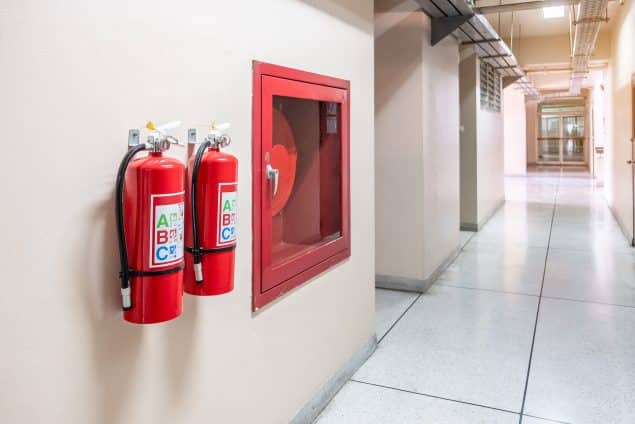Home » News Stories » Maintaining fire safety regulations in the workplace
Maintaining fire safety regulations in the workplace
https://www.whatjobs.com/news/news-stories/maintaining-fire-safety-regulations-in-the-workplace

By Hugh Fort in News Stories, posted November 29, 2022

Fire safety is an important matter in the workplace.
It’s your duty as an employer to make sure you have the right precautions and implementations and if you’re an employee, it’s important to be aware of the actions you should take.
The Fire and Rescue Service attended 11% more incidents in the year ending March 2022 compared to the previous year, showing that fire hazards are still very much a risk.
The importance of fire regulations
Fire safety regulations are there to help save lives. If you own a business and employ people, it is your duty to protect your staff and any customers or visitors onsite. Some workplaces will be more prone to fire risk than others, but it’s still important to have the correct fire safety regulations in place.
How you can maintain fire safety regulations
By working through these steps, you can help make the workplace a safer place for everybody.
- Carry out a fire safety risk assessment. You should identify potential fire hazards so that you can implement any safety precautions that will help minimise risk. This involves considering any vulnerable people onsite, as well as creating an action plan that highlights any emergency exits or meeting points.
- Have fire doors that automatically shut. Investing in proper fire doors with the correct door closers is essential for minimising the risk of smoke and flames spreading throughout the building. Buying time is key when a fire starts, so anything that can delay the spread can influence how dangerous it becomes.
- Keep sources of ignition and flammable substances apart. Electrical sparks, naked flames, static electricity and even hot surfaces are all sources of ignition. Highly flammable substances such as petrol, welding gases or heating fuels should be kept away from sources of ignition. In an office environment, this might include damaged power cords, soft furnishings or heaters.
- Avoid accidental fires. Fires can be started more easily than you might expect. Something as simple knocking over a heater or faulty sockets and outlets can cause a fire to start. Even a build-up of dust can cause fires if ventilation is blocked in any way. Being aware of these hazards and educating others is key to help prevent any accidents.
- Ensure good housekeeping at all times. It is important to avoid any build-up of rubbish that could be susceptible to catching fire – some materials are more flammable than you think! Examples of these materials include wood, paper, plastic, loose packaging materials and more. A tidy workplace is important for reducing hazards in general but can be especially important when it comes to fire safety.











